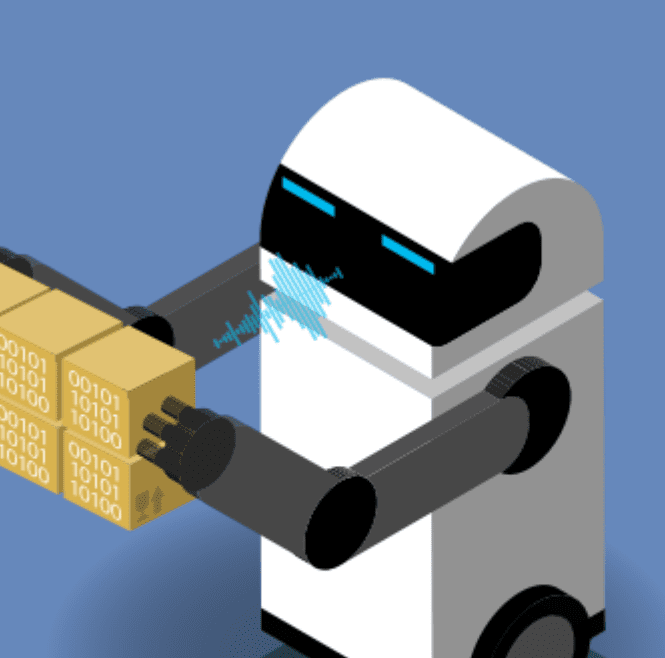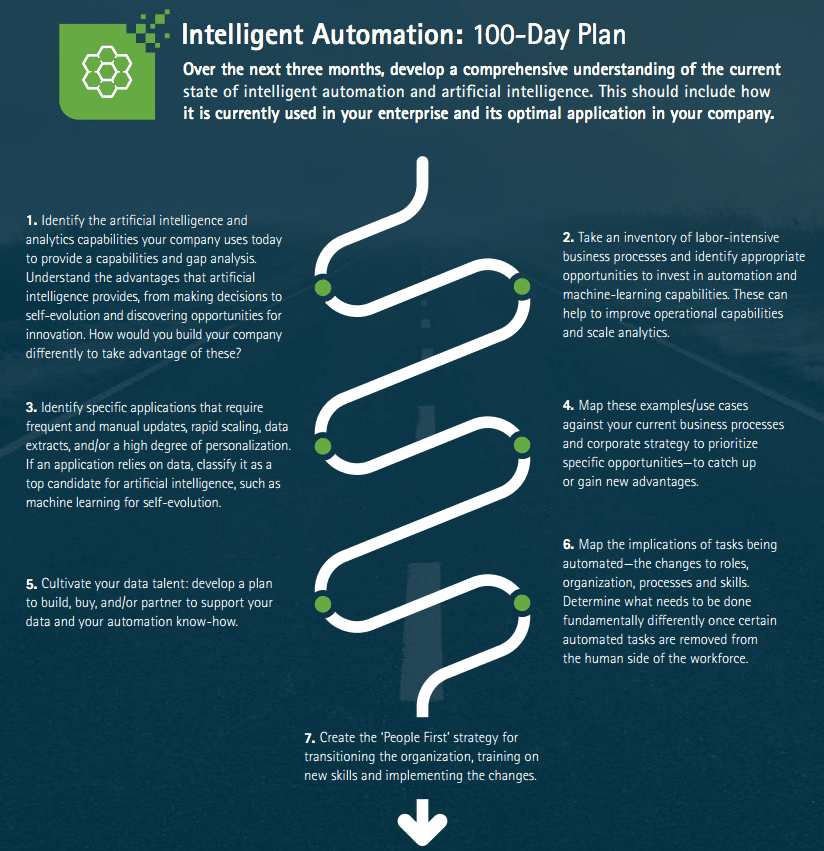AI isn't going to take your job. It's going to make you better at it.
When Deep Blue beat Garry Kasparov in 1996, it was a testament to the incredible number crunching power of a computer. Deep Blue was capable of evaluating 200 million moves per second, and no one since built a more powerful chess computer. That's right - even though it was built in 1996, it's still the most powerful chess computer ever built. Can you think of any other type of computer for which processing power peaked in 1996? No, I didn't think so.
So why has no one ever built a more powerful chess computer? Because advances in AI mean you simply don't need that hardware anymore. Today it's possible to get your old laptop to beat the best chess player in the world by installing some chess software, and even though your rusty old machine is only capable of evaluating some 8 million moves per second compared to Deep Blue's 200 million, it could still give the top chess masters a good thrashing. Why? because the AI software in the best chess programmes has gotten so much more intelligent.
Last year Google's Alpha Go AI beat a master at the much more complex Asian version of Chess known as 'Go'. Just months before experts had been saying AI technology capable of beating a master at Go was 10 years away. Google just got a machine to beat a human at a game which requires creativity and intuition, as the game has many more possible moves than there are atoms in the universe.
But that's enough about chess. The point is that advances in AI over the past 20 years are so enormous that computers are increasingly able to understand and solve complex tasks that previously would have required human brainpower, and you don't need to have the IQ of Garry Kasparov to know that this will radically alter the world of work.
Meet your hardworking and intelligent new co-worker: Dr Robotnik
If you work doing a repetitive manual job, then you may well be right to fear the rise of the coming robo-age. Visitors to Siemens’ new ‘lights out’ manufacturing plant will notice that they've automated some of its production lines to the point where they can run unsupervised for several weeks. But if you're reading this you probably work in a creative job which requires communicating with your fellow humans, like marketing, advertising or, dare I say it, sales.

The human focused and creative nature of your job means your not going to get 'automated' anytime soon. AI is smart, but it won't be coming up with your new advertising strategy anytime soon, and nor will it land that big client for you by charming them over lunch.
So whilst you can breathe a sigh of relief, that doesn't mean the incredibly powerful new AI systems that we will see in the coming few years aren't going to radically alter how you do your job.
The real power of intelligent automation lies in its ability to alter the traditional ways of operating, for businesses and individuals. The machines offer strengths and capabilities (scale, speed, and the ability to cut through complexity) that are different from—but complementary to—human skills. And their increasing sophistication is changing the rules of what’s possible so that people and their new digital co-workers can together do things differently. In marketing, we see delivering highly personalised ads via extensive use of data as the most effective way of engaging potential customers in an age of ad-blocking, banner blindness and disengagement from traditional media. AI offers unique abilities in this field, which humans could never deliver on their own, but in tandem can work to deliver an incredibly personalised experience.
How AI can make you a better marketer
You may be thinking, I've already got the usual, human version of intelligence, do I really need the artificial kind as well? If you're thinking you're going to be arguing with the AI about the right direction for your marketing strategy then you're thinking about it all wrong. AI won't be as smart as you, but that's not what you want the AI for. You want to leverage the AI's unique abilities you can't compete with it in: Analysing huge volumes of data, delivering responses instantaneously, not needing a rest.
By implementing AI in the right way, you can have your website serve your visitors with exactly the right content that appeals to their niche interests, based on the digital footprint they've left behind, and then send them intelligently crafted messages designed specifically to appeal to them and featuring the exact products they are most likely to want to purchase. You're still in charge of writing the content and choosing the creative designs, but the AI handles the tasks it excels at around the clock, 365 days a year.
The machines won't replace us, but marketers will become part machine.

Implementing AI
Talking about how useful AI could be in theory is one thing, but putting it into practice is altogether different. The process is already well underway. The number of AI start up's has increased 20-fold in the past 4 years, whilst 70% of executives are making significantly more investments in Artificial Intelligence than in 2013, according to a report from Accenture.
To implement AI into your business processes you'll need to identify key areas to look at and then review your capabilities and undertake gap analysis. It may well be that existing systems and processes will have to change in order to incorporate AI, and if you are a larger organisation that works with legacy systems, there may be technological hurdles to overcome in integrating older databases with new AI systems.
Accenture has produced this graphic to help you structure your thinking and cover some of the key point's you'll need to think about when implementing AI within your business.

The graphic will help you to ask some of the right questions, but is it really possible to do all that in 100 days? - Perhaps if you already have the right resources in place, but I think for most businesses the 100-day time frame for transforming an organisation to integrate AI into its processes it rather over-ambitious. Call me a pessimist, but I think it's a recipe for overruns and missed deadlines.
The transformation of an organisation to have digital at its heart rather than a side 'silo' is no mean feat and can take over a year, or multiple years for big companies with layers of managers able to resist change. It is a complex process which requires getting multiple stakeholders on board and evaluating performance across a plethora of departments.
If you are trying to transform your organisation into one which puts digital first and integrates it into everything it does rather than being bolted on as an afterthought, then our digital transformation guide should be really helpful.
Download Expert Member resource – Managing Digital Transformation Guide
This guide will support you if you are a manager in a business who is looking to make a difference by increasing the impact of digital marketing in your organization. It shows how to review the current use of digital technology and media within a business and then create a roadmap, governance and processes for key activities to manage change to increase the business contribution from digital marketing.
Access the Managing digital transformation guide
We'd love to hear your thoughts on how AI can help marketers to do thing's they'd previously only dreamed of. Or maybe it's for the future. If you've just started building AI into your systems let us know how it's going.











